
Pohang: The Coastal Gem of South Korea
Nestled along the East Sea, Pohang is a city that seamlessly blends natural beauty with industrial prowess. Known for its stunning beaches and vibrant port, Pohang offers a unique experience for every traveler. Whether you're a nature lover, a history buff, or a foodie, this city has something special in store for you. Start your journey with a visit to Homigot Sunrise Square, where you can witness one of the first sunrises in Korea. The Hand of Harmony sculpture is a must-see and symbolizes coexistence and unity. If you love the sea, Bukbu Beach and Yeongildae Beach are perfect spots for sunbathing, swimming, and enjoying fresh seafood. Pohang is also home to the famous POSCO steel mill, one of the largest in the world. Take a guided tour to understand the city's industrial backbone and marvel at the sheer scale of the operations. For a touch of history, visit the Oeosa Temple, a serene site nestled in the mountains, offering a peaceful retreat from city life. Don't miss out on Pohang's culinary delights. The city is renowned for its gwamegi, a semi-dried Pacific herring or saury. Enjoy it with a glass of local soju for an authentic Korean experience. Pohang's bustling Jukdo Market is another hotspot where you can sample fresh seafood and traditional Korean dishes. Finally, Pohang's vibrant festivals like the Pohang International Fireworks Festival and the Pohang Steel Art Festival offer a glimpse into the local culture and creativity. These events are a great way to mingle with locals and experience the city’s lively atmosphere.
Local tips in Pohang
- Visit Homigot Sunrise Square early in the morning to catch the stunning sunrise and avoid the crowds.
- Book a guided tour of the POSCO steel mill in advance as slots can fill up quickly.
- Try gwamegi at a local restaurant for an authentic taste of Pohang's culinary heritage.
- Wear comfortable shoes for exploring the Jukdo Market as it can get crowded and involves a lot of walking.
- Check the festival dates and plan your visit around the Pohang International Fireworks Festival or the Pohang Steel Art Festival for a memorable experience.
Pohang: The Coastal Gem of South Korea
Nestled along the East Sea, Pohang is a city that seamlessly blends natural beauty with industrial prowess. Known for its stunning beaches and vibrant port, Pohang offers a unique experience for every traveler. Whether you're a nature lover, a history buff, or a foodie, this city has something special in store for you. Start your journey with a visit to Homigot Sunrise Square, where you can witness one of the first sunrises in Korea. The Hand of Harmony sculpture is a must-see and symbolizes coexistence and unity. If you love the sea, Bukbu Beach and Yeongildae Beach are perfect spots for sunbathing, swimming, and enjoying fresh seafood. Pohang is also home to the famous POSCO steel mill, one of the largest in the world. Take a guided tour to understand the city's industrial backbone and marvel at the sheer scale of the operations. For a touch of history, visit the Oeosa Temple, a serene site nestled in the mountains, offering a peaceful retreat from city life. Don't miss out on Pohang's culinary delights. The city is renowned for its gwamegi, a semi-dried Pacific herring or saury. Enjoy it with a glass of local soju for an authentic Korean experience. Pohang's bustling Jukdo Market is another hotspot where you can sample fresh seafood and traditional Korean dishes. Finally, Pohang's vibrant festivals like the Pohang International Fireworks Festival and the Pohang Steel Art Festival offer a glimpse into the local culture and creativity. These events are a great way to mingle with locals and experience the city’s lively atmosphere.
When is the best time to go to Pohang?
Iconic landmarks you can’t miss
Pohang Jukdo Market
Explore Pohang Jukdo Market, a vibrant seafood paradise where fresh catches and local flavors come alive in a bustling marketplace atmosphere.
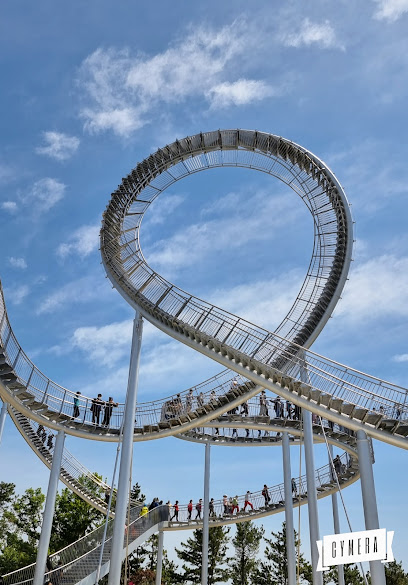
Yeongildae Beach
Experience the tranquil beauty of Yeongildae Beach in Pohang-si, a perfect escape for relaxation, adventure, and stunning coastal sunsets.
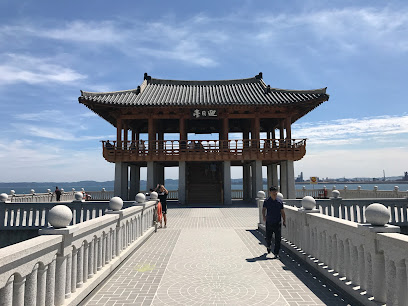
Guryongpo Japanese House Street
Discover the charm of Guryongpo Japanese House Street, where history and culture blend in a picturesque setting, ideal for tourists seeking a unique experience.
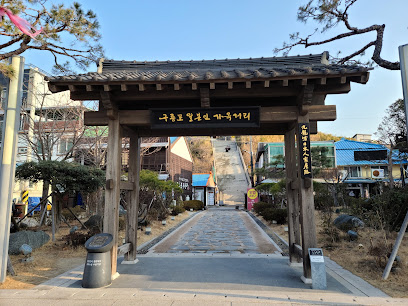
Homigot Sunrise Square
Experience breathtaking sunrises and cultural beauty at Homigot Sunrise Square, a coastal gem in Pohang-si, South Korea.
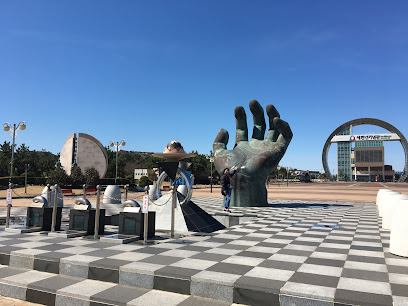
Hand of Mutual Shake
Discover the Hand of Mutual Shake in Pohang, a stunning coastal landmark symbolizing unity and friendship, perfect for unforgettable memories.
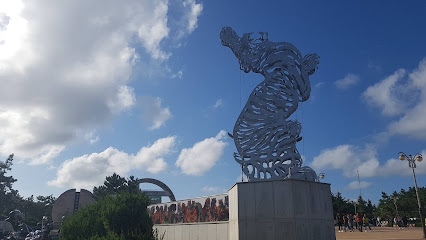
Hwanho Sunrise Park
Experience the beauty of nature and stunning ocean views at Hwanho Sunrise Park in Pohang, South Korea - a perfect retreat for every traveler.
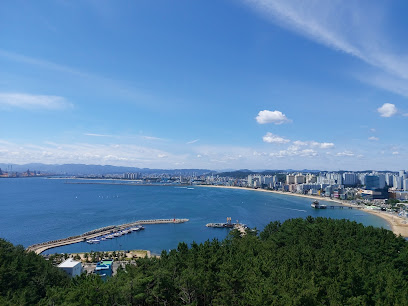
Yeonorang Seonyeo Theme Park
Discover the magic of Yeonorang Seonyeo Theme Park in Pohang-si, where thrilling rides and enchanting landscapes await every visitor.
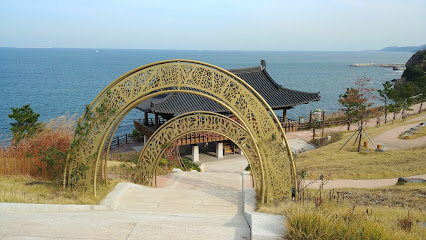
Igari anchor observatory
Experience the stunning coastal vistas at Igari Anchor Observatory, a serene gem in Gyeongsangbuk-do perfect for nature lovers and photographers.
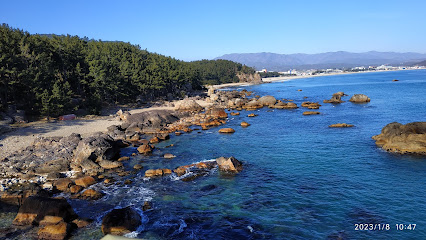
Hwanho Park Space Walk
Explore Hwanho Park Space Walk in Pohang-si for a perfect blend of tranquility and scenic beauty amidst nature's charm.
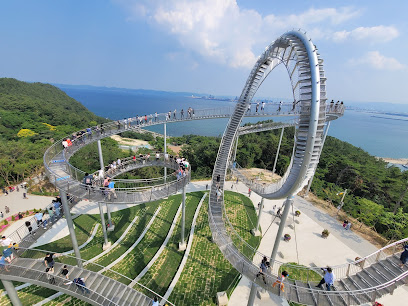
Oeosa Temple
Discover the serene beauty and spiritual heritage of Oeosa Temple, a tranquil Buddhist sanctuary in Gyeongsangbuk-do, perfect for reflection and cultural exploration.
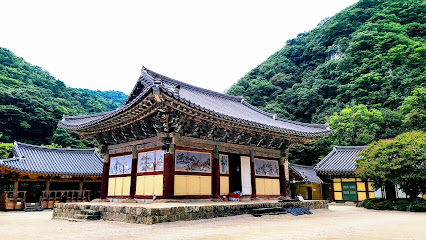
Young-il Bridge
Explore the Young-il Bridge in Pohang, a stunning architectural gem offering breathtaking views and memorable experiences along the water.
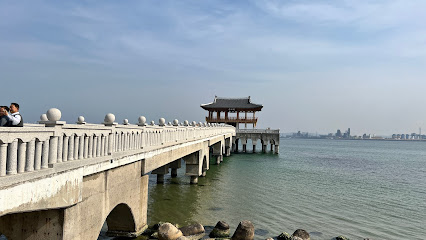
Guryongpo Beach
Experience the enchanting Guryongpo Beach in Pohang-si, South Korea, where serene sands meet vibrant local culture and thrilling water sports.
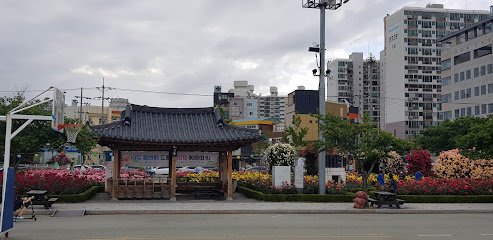
Bogyeongsa Temple
Explore the serene beauty of Bogyeongsa Temple, a captivating Buddhist sanctuary surrounded by nature in Pohang, Gyeongsangbuk-do.
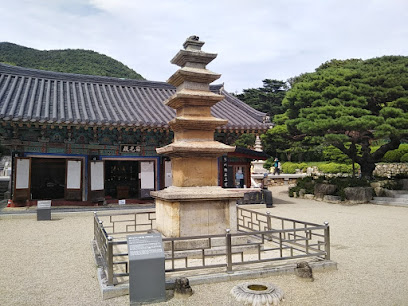
Guryongpo Gwamegi Culture Museum
Discover the essence of Guryongpo's fishing culture and heritage at the Guryongpo Gwamegi Culture Museum, a unique tourist attraction in Pohang-si.
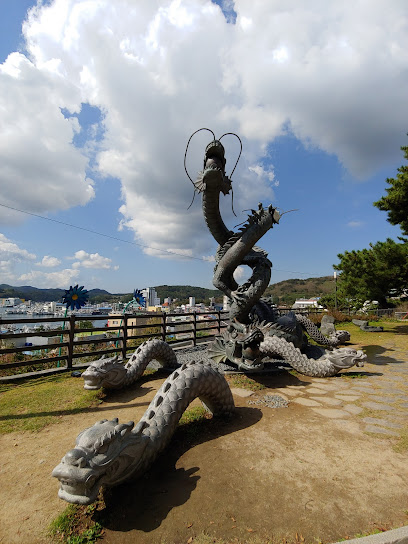
The Garden of Fire
Discover the enchanting beauty of The Garden of Fire, a stunning botanical park in Pohang, South Korea, perfect for nature lovers and tourists.
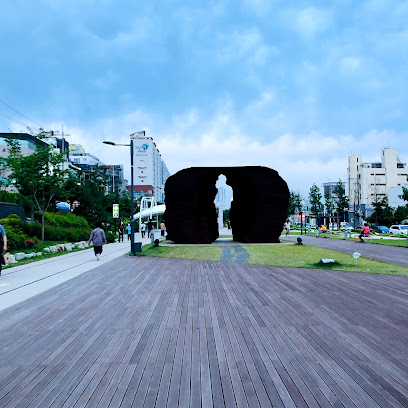
Unmissable attractions to see
Cheomseongdae Observatory
Discover the ancient wonders of Cheomseongdae Observatory, Korea's oldest astronomical observatory, nestled in the historical city of Gyeongju.
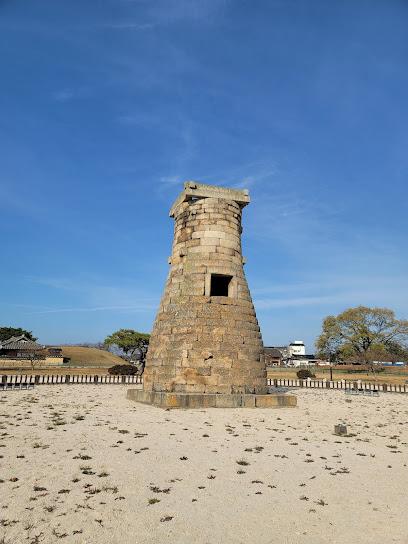
Donggung Palace & Wolji Pond
Discover the serene beauty and rich history of Donggung Palace & Wolji Pond, a captivating historical landmark in Gyeongju, South Korea.
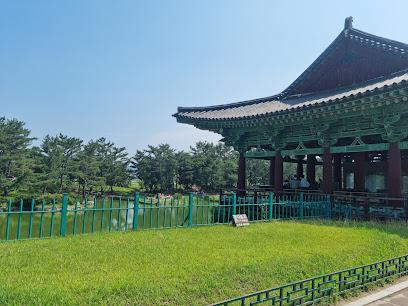
Bulguksa Temple
Discover the serene beauty and rich history of Bulguksa Temple, a UNESCO World Heritage site in Gyeongju, South Korea, where spirituality meets stunning architecture.
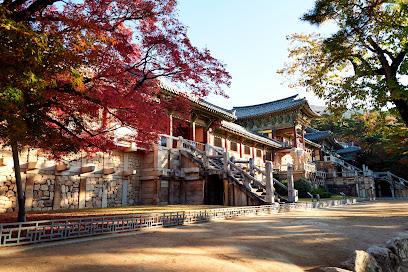
Gyeongju National Museum
Explore Gyeongju National Museum, where ancient Silla Kingdom artifacts bring Korea’s rich history to life in an engaging cultural experience.
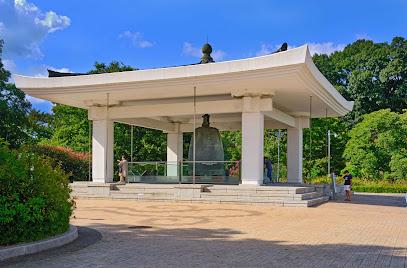
Gyeongju World
Experience the thrill of rides, cultural performances, and family fun at Gyeongju World, the top theme park in Korea's historic Gyeongju city.
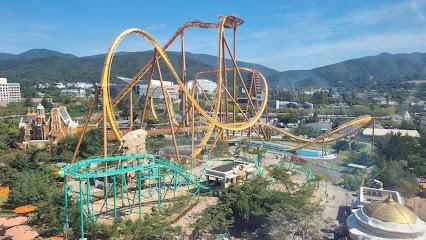
Woljeonggyo Bridge
Experience the historical charm and natural beauty of Woljeonggyo Bridge in Gyeongju, a captivating destination steeped in culture and scenic splendor.
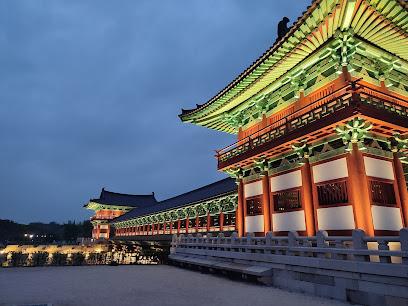
Yeongildae Beach
Experience the breathtaking beauty of Yeongildae Beach, a serene seaside escape in Pohang-si, perfect for relaxation and adventure.
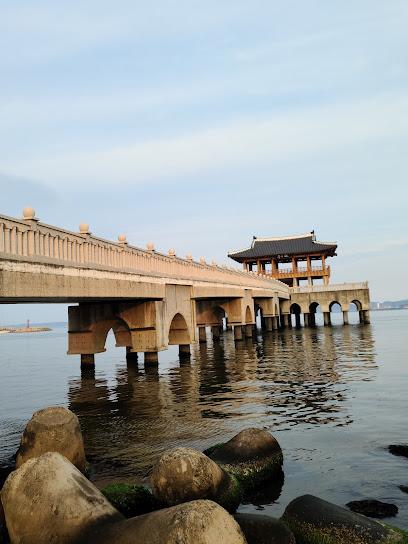
Seokguram Grotto
Discover the serenity and artistry of Seokguram Grotto, a UNESCO World Heritage site showcasing ancient Buddhist sculptures in a natural paradise.
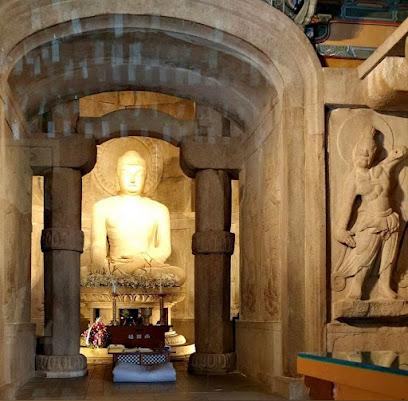
Hwangnidan-gil
Explore Hwangnidan-gil, a vibrant street in Gyeongju, blending traditional charm with modern delights, perfect for food lovers and culture enthusiasts.
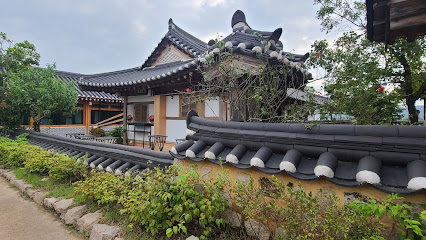
Gyeongju Gyochon Traditional Village
Discover the rich cultural heritage and traditional architecture of Gyeongju Gyochon Traditional Village, a must-visit destination in South Korea.
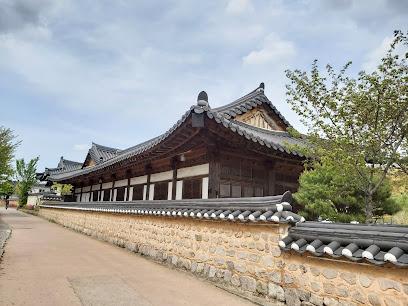
Homigot Sunrise Square
Discover the enchanting beauty of Homigot Sunrise Square, where breathtaking sunrises and iconic sculptures await in Pohang-si, South Korea.
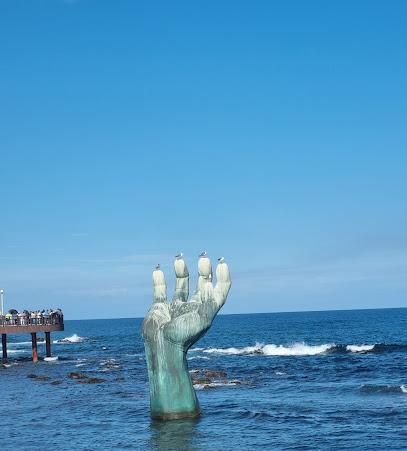
Homigot Sunrise Square
Experience the breathtaking sunrises at Homigot Sunrise Square, where the harmony of nature and culture come together in Pohang-si, South Korea.
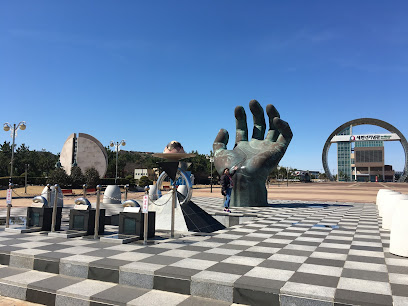
Daereungwon Tomb Complex
Discover the ancient grandeur of the Daereungwon Tomb Complex, a UNESCO World Heritage site in Gyeongju-si, revealing Korea's rich Silla Kingdom history.
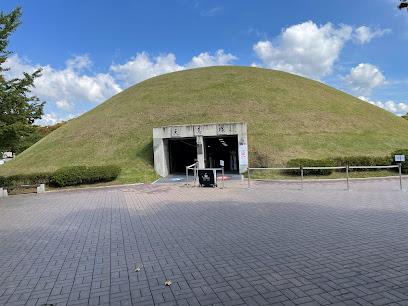
Hand of Mutual Shake
Visit the Hand of Mutual Shake in Pohang for breathtaking views and a symbol of unity, celebrating the spirit of friendship along the beautiful coastline.
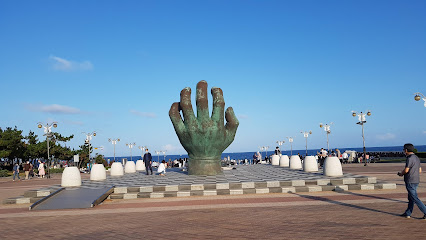
Yangdong Folk Village
Experience the rich cultural heritage of Korea at Yangdong Folk Village, a UNESCO World Heritage site showcasing traditional architecture and vibrant history.
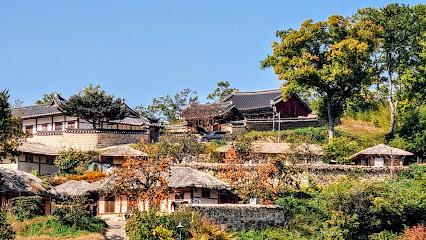
Essential places to dine
Hwanyeo Seafood
Experience authentic Korean seafood at Hwanyeo Seafood in Pohang-si - where freshness meets flavor in every dish.
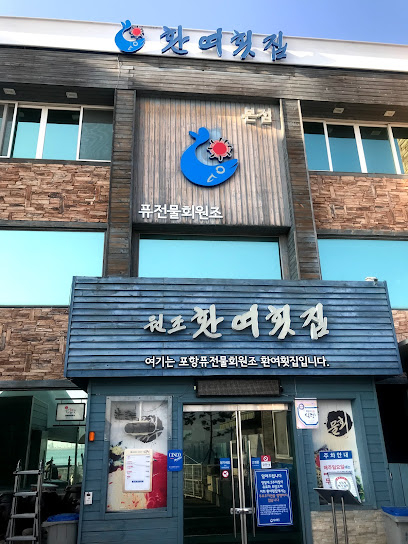
파티스
Discover the ultimate buffet experience at 파티스 in Pohang - where culinary excellence meets delightful variety.
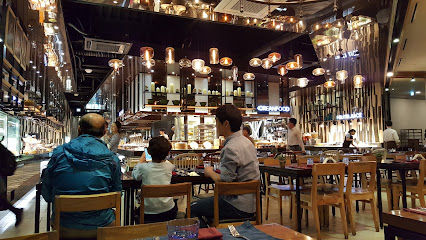
Tomatillo Pohang
Experience authentic Mexican cuisine at Tomatillo Pohang - where every dish is crafted with passion and flavor.
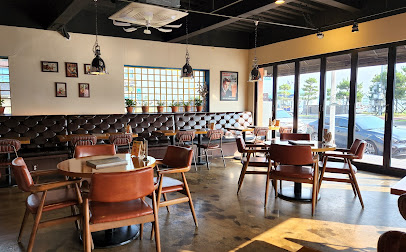
범촌매운탕
Experience authentic Korean cuisine at 범촌매운탕 with its famous spicy fish stew in Pohang-si - a must-visit for food enthusiasts.
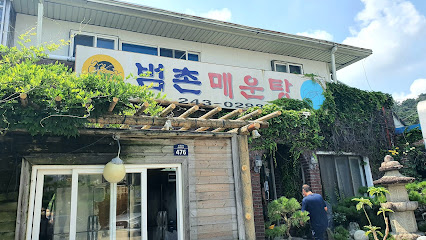
낙원가든식당
Experience authentic Korean cuisine at 낙원가든식당 in Pohang – a hidden gem for food lovers seeking rich flavors and warm hospitality.
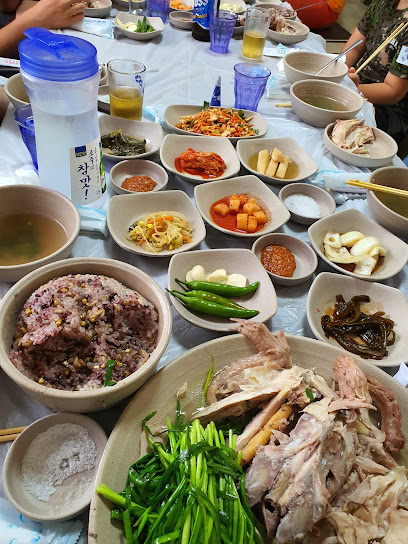
Ugojib
Discover the rich flavors of traditional Korean beef dishes at Ugojib in Pohang-si – a culinary gem for food enthusiasts.
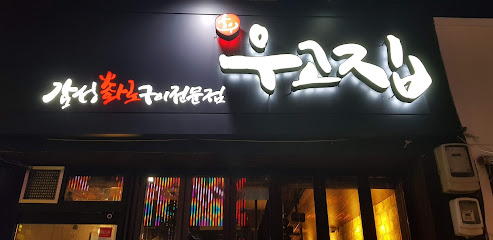
달전밀면
Discover the flavors of Korea at 달전밀면 in Pohang-si - savor authentic milmyeon in a cozy setting.
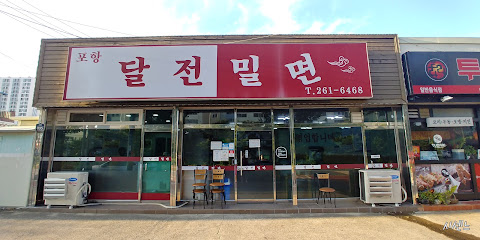
포항축산농협축산물프라자 달전점
Savor authentic Korean beef dishes at 포항축산농협축산물프라자 달전점, where quality meets tradition in every bite.
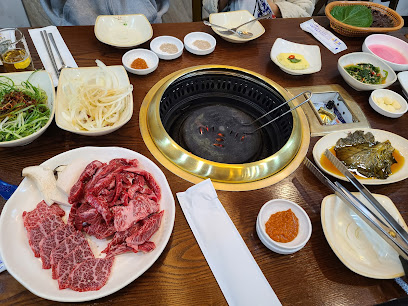
별난매운탕
Discover the authentic taste of Korea at 별난매운탕 in Pohang-si – where spicy fish stew meets coastal culinary tradition.
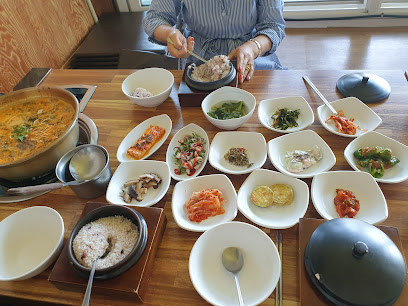
갑을장어
Savor authentic Korean cuisine at 갑을장어 in Pohang - a culinary gem renowned for its fresh seafood and delightful dining experience.
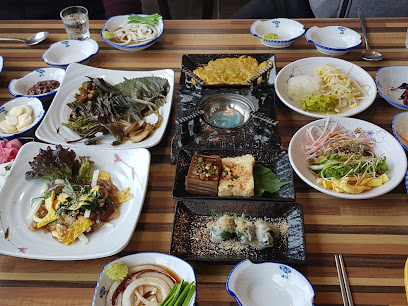
호리민물장어
Discover authentic Korean cuisine at 호리민물장어 in Pohang, specializing in exquisite freshwater eel dishes crafted from the freshest local ingredients.
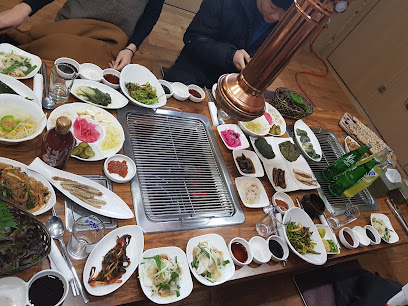
남경갈비성
Experience authentic Korean cuisine at 남경갈비성 in Pohang-si - a culinary gem known for its delicious grilled meats and vibrant atmosphere.
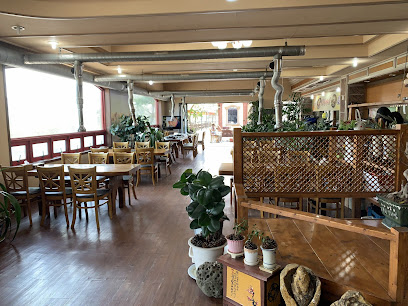
텃밭식당
Experience authentic Korean cuisine at 텃밭식당 in Pohang – where fresh ingredients meet traditional flavors for an unforgettable meal.
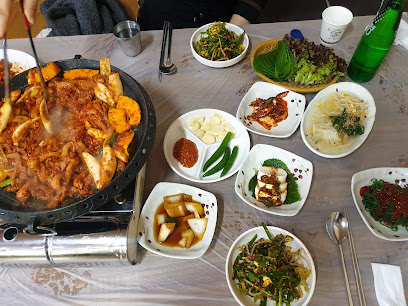
홍대박산낙지센터
Savor authentic Korean seafood at 홍대박산낙지센터, where every dish tells a story of tradition and flavor.
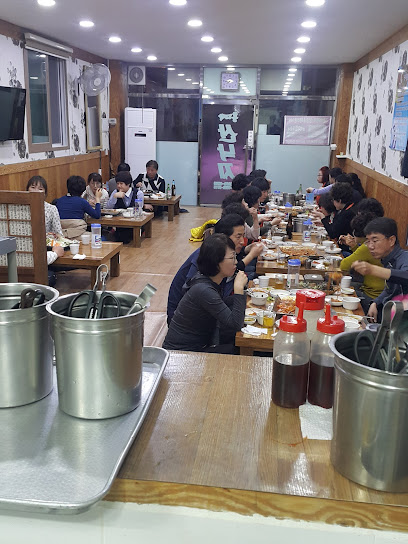
틸트
Discover the perfect blend of delicious cuisine and lively nightlife at 틸트 in Pohang-si - an unmissable destination for food lovers.
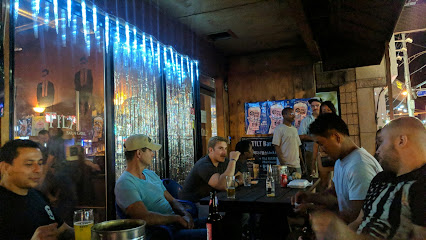
Markets, malls and hidden boutiques
Emart
Discover the vibrant shopping experience at Emart in Pohang, offering a wide variety of products and local delicacies for every traveler.
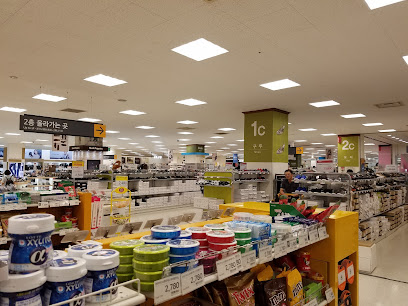
Lotte Mart
Explore the vibrant Lotte Mart in Pohang for a unique shopping experience with local flavors, groceries, and more!
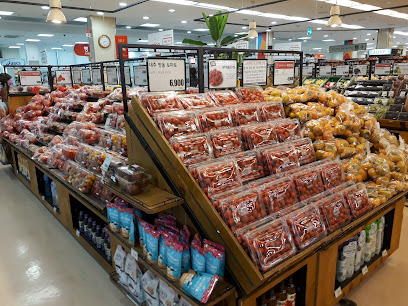
Odin
Discover Odin in Pohang, where exquisite coffee meets a cozy atmosphere, perfect for relaxation and exploration of local culture.
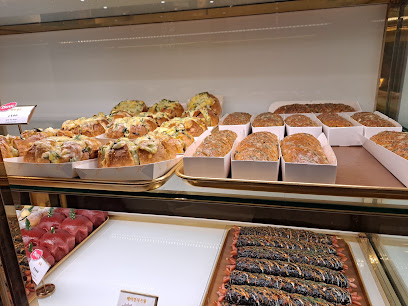
Pohang Riverwalk
Explore Pohang Riverwalk: A shopping haven by the river with stunning views, vibrant culture, and delightful local cuisine.
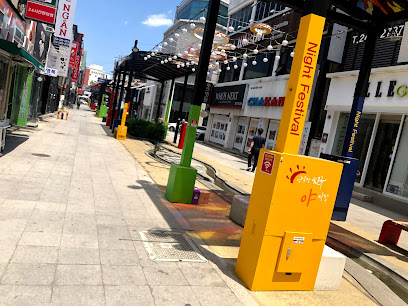
Asia Mart
Experience the vibrant shopping culture of Pohang at Asia Mart, where local charm meets modern retail in a lively atmosphere.
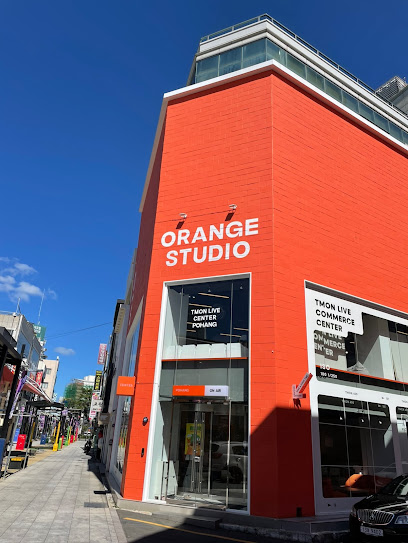
포항지센흥해점
Explore unique fashion finds and trendy apparel at 포항지센흥해점 in Pohang, a vibrant clothing store reflecting modern Korean style.
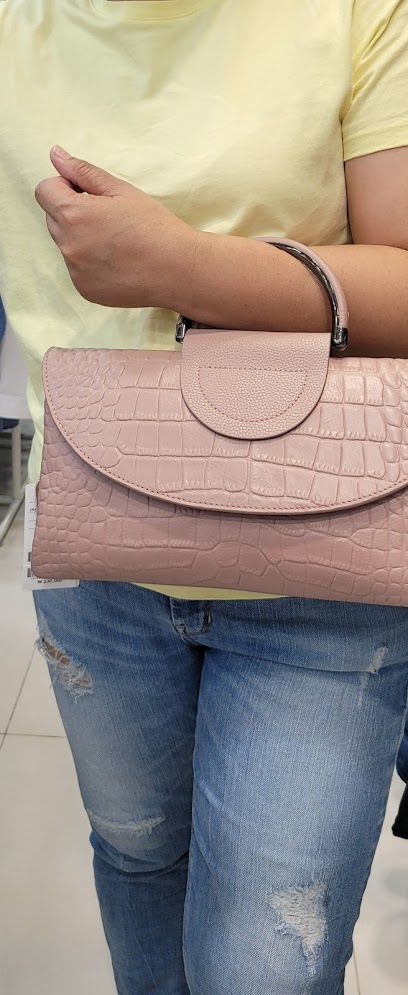
구름속산책
Discover the charm of 구름속산책, a serene coffee shop in Pohang-si offering local brews and a cozy atmosphere for relaxation.
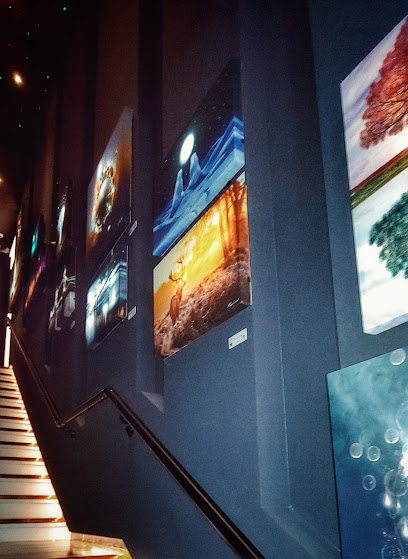
Shoopen
Explore Shoopen in Pohang for a unique shopping experience, blending modern retail with local culture and delicious dining options.
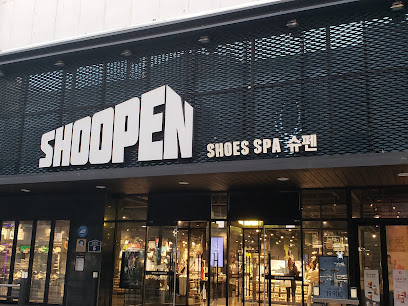
올소 포항점
Explore the charm of Korean craftsmanship at 올소 포항점, a home goods store in Pohang-si, where unique decor meets local artistry.
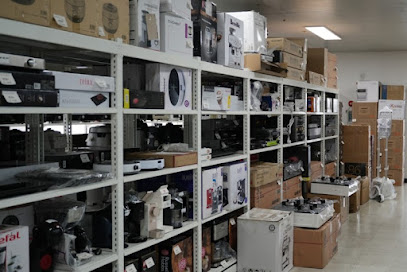
Almateu
Explore Almateu, the go-to supermarket in Pohang for local delicacies, groceries, and unique souvenirs during your travels in Gyeongsangbuk-do.
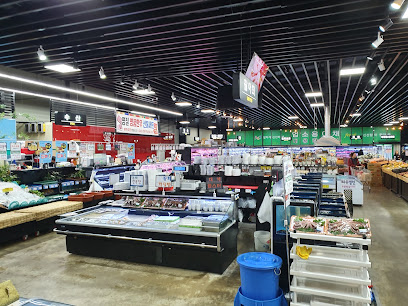
부띠크나린
Explore unique fashion pieces and local artistry at 부띠크나린 in Pohang-si, South Korea, a boutique that showcases contemporary Korean styles.

그래니테디
Experience the sweet essence of Korea at 그래니테디, a delightful dessert shop in Pohang's Buk-gu district, perfect for all dessert lovers.

Henry Cotton's Lotte - Pohang
Discover the latest fashion trends and styles at Henry Cotton's Lotte in Pohang, a premier dress store offering quality attire for every occasion.

스토리웨이 편의점(포항3층 맞이방)
Storyway Convenience Store: Your essential stop for snacks, beverages, and travel necessities in Pohang.
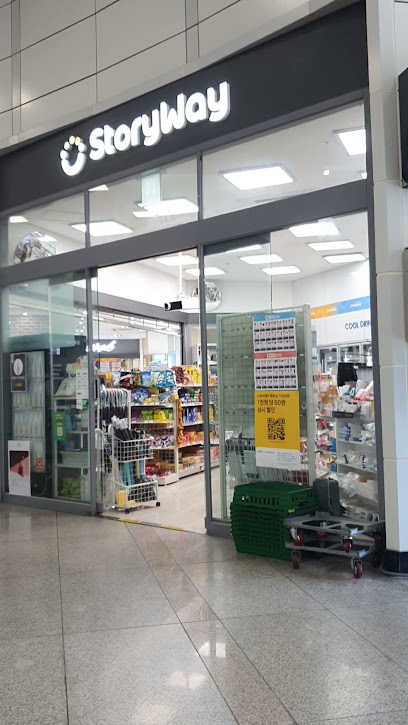
Odeu
Discover Odeu, the perfect coffee shop in Pohang for a relaxing break amidst your travels, offering delightful brews and a cozy atmosphere.

Essential bars & hidden hideouts
XTC PUB
Discover the energetic nightlife of Pohang at XTC PUB, a vibrant bar and night club offering drinks, music, and unforgettable experiences.
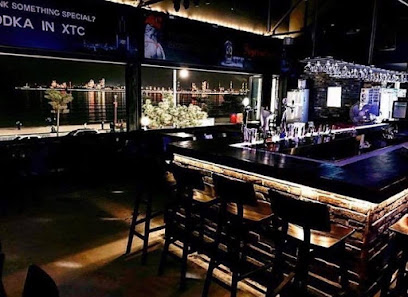
Geonneolmog
Discover the vibrant nightlife at Geonneolmog, a must-visit bar in Pohang offering a diverse selection of drinks and a lively atmosphere.
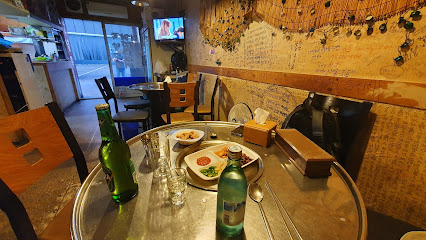
틸트
Discover the lively ambiance and delicious offerings at 틸트, a must-visit bar and restaurant in Pohang-si, Gyeongsangbuk-do.
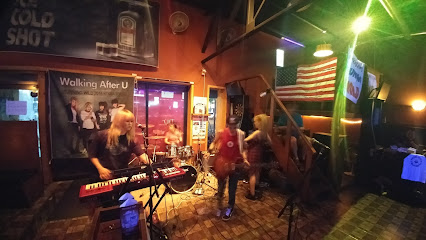
폭탄주 이모네 맥주공장
Experience the lively nightlife and unique bomb shots at 폭탄주 이모네 맥주공장, a must-visit pub in Pohang-si, Gyeongsangbuk-do.
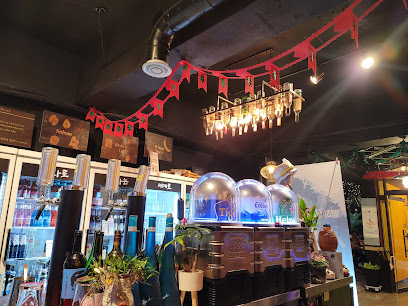
괴테앤베이비
Experience the vibrant nightlife at 괴테앤베이비 in Pohang-si, where great drinks and lively ambiance await.
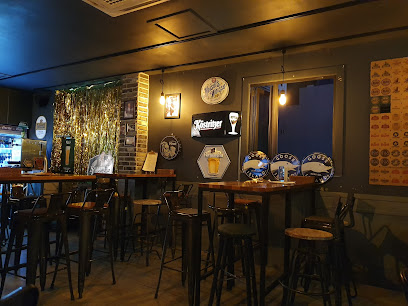
KOS PUB 코스펍
Discover the lively nightlife of Pohang at KOS PUB, a premier cocktail bar offering a vibrant atmosphere and exquisite drinks.
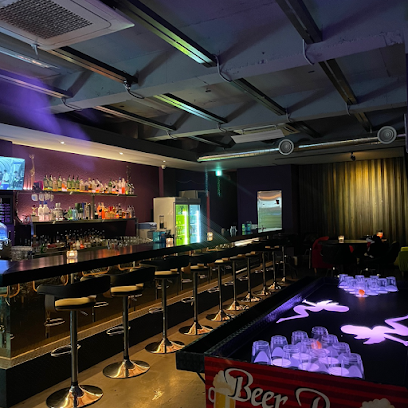
용구비어
Discover the lively atmosphere and local brews at 용구비어, a vibrant bar in Buk-gu, Pohang, perfect for unwinding after a day of exploration.
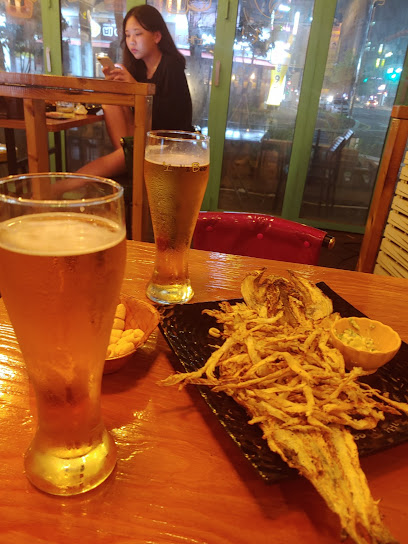
Jjongkkil-I
Discover the charm of Jjongkkil-I, a cozy bar in Pohang-si, perfect for unwinding and enjoying local drinks in a vibrant atmosphere.
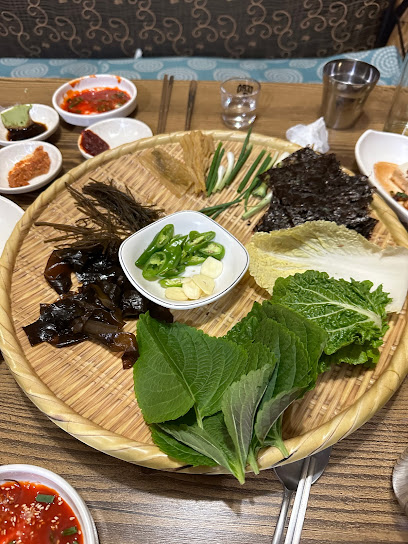
Billieon
Discover the vibrant nightlife at Billieon, a bar in Pohang-si offering a unique blend of local drinks and lively atmosphere for all travelers.
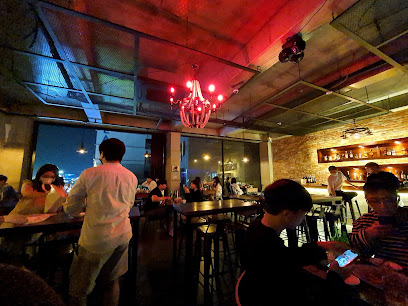
Pateuneo
Experience the vibrant nightlife of Pohang-si at Pateuneo, a lively bar offering local flavors and a welcoming atmosphere for all.

비엔에스
Discover the vibrant nightlife of Pohang-si at 비엔에스, a lively bar offering a wide range of drinks and a welcoming atmosphere for all.

Gaemseuteo
Experience the vibrant nightlife of Pohang-si at Gaemseuteo, a charming bar offering a diverse drink selection and lively atmosphere.

Liseoseu
Discover Liseoseu, a cocktail bar in Pohang offering innovative mixology and a cozy atmosphere perfect for unwinding after a day of exploration.

미무
Experience the vibrant nightlife at 미무 Bar in Pohang, where delicious drinks and a lively atmosphere await all visitors.
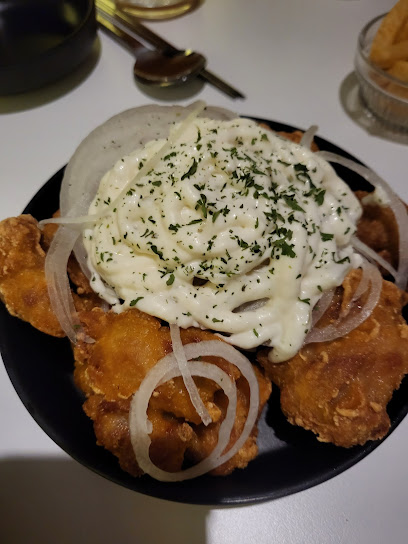
Local Phrases
-
- Hello안녕하세요
[annyeonghaseyo] - Goodbye안녕히 가세요
[annyeonghi gaseyo] - Yes네
[ne] - No아니요
[aniyo] - Please/You're welcome부탁합니다
[butakhamnida] - Thank you감사합니다
[gamsahamnida] - Excuse me/Sorry죄송합니다
[joesonghamnida] - How are you?어떻게 지내세요?
[eotteoke jinaeseyo?] - Fine. And you?잘 지내요. 그리고 당신은?
[jal jinaeyo. geurigo dangsineun?] - Do you speak English?영어 할 수 있어요?
[yeongeo hal su isseoyo?] - I don't understand이해하지 못해요
[ihaehaji mothaeyo]
- Hello안녕하세요
-
- I'd like to see the menu, please메뉴를 보여주세요
[menyureul boyeojuseyo] - I don't eat meat고기를 먹지 않아요
[gogireul meokji anayo] - Cheers!건배!
[geonbae!] - I would like to pay, please결제하고 싶어요
[gyeoljehago sipeoyo]
- I'd like to see the menu, please메뉴를 보여주세요
-
- Help!도와주세요!
[dowajuseyo!] - Go away!가세요!
[gaseyo!] - Call the Police!경찰을 부르세요!
[gyeongcaleul bureuseyo!] - Call a doctor!의사를 부르세요!
[uisareul bureuseyo!] - I'm lost길을 잃었어요
[gireul ileosseoyo] - I'm ill아파요
[apayo]
- Help!도와주세요!
-
- I'd like to buy...사고 싶어요...
[sago sipeoyo...] - I'm just looking둘러보고 있어요
[dulleobogo isseoyo] - How much is it?얼마에요?
[eolmaeyo?] - That's too expensive너무 비쌈
[neomu bissam] - Can you lower the price?가격을 깎을 수 있어요?
[gageoreul kkageul su isseoyo?]
- I'd like to buy...사고 싶어요...
-
- What time is it?몇 시에요?
[myeot sieyo?] - It's one o'clock한 시에요
[han sieyo] - Half past (10)10시 반
[10si ban] - Morning아침
[achim] - Afternoon오후
[ohu] - Evening저녁
[jeonyeok] - Yesterday어제
[eoje] - Today오늘
[oneul] - Tomorrow내일
[naeil] - 1일
[il] - 2이
[i] - 3삼
[sam] - 4사
[sa] - 5오
[o] - 6육
[yuk] - 7칠
[chil] - 8팔
[pal] - 9구
[gu] - 10십
[sip]
- What time is it?몇 시에요?
-
- Where's a/the...?...이 어디에요?
[...i eodieyo?] - What's the address?주소가 뭐에요?
[jusoga mwoeyo?] - Can you show me (on the map)?지도로 보여주실 수 있어요?
[jidoro boyeojusil su isseoyo?] - When's the next (bus)?다음 버스는 언제와요?
[daeum beoseuneun eonjewayo?] - A ticket (to ....)표 (....로)
[pyo (....ro)]
- Where's a/the...?...이 어디에요?
History of Pohang
-
Pohang, situated in the southeastern part of South Korea, has a rich history dating back to ancient times. Archaeological findings suggest that the area was inhabited during the prehistoric period. The region was part of the Jinhan Confederacy during the Proto-Three Kingdoms period, serving as an integral hub for trade and cultural exchange.
-
During the Silla Dynasty (57 BC – 935 AD), Pohang became an important maritime city. It was a key point for trade with Japan and other neighboring regions. The city’s coastal location made it an ideal place for shipbuilding and fishing, industries that have continued to thrive for centuries.
-
Pohang, like the rest of Korea, fell under Japanese rule from 1910 to 1945. During this period, the Japanese developed the city's infrastructure, including the construction of railways and ports. However, this era also brought hardships, as the local population faced oppression and economic exploitation.
-
Pohang played a critical role during the Korean War (1950-1953). The Battle of Pohang-dong was one of the first major engagements between North and South Korean forces. The city’s strategic position and its port facilities made it a vital supply route for UN forces.
-
Following the Korean War, Pohang experienced rapid industrialization. The establishment of POSCO (Pohang Iron and Steel Company) in 1968 marked a turning point. POSCO grew to become one of the largest steel manufacturers in the world, boosting the local economy and transforming Pohang into an industrial powerhouse.
-
Despite its industrial growth, Pohang has preserved its cultural heritage. The city is home to several historical sites, such as the Oeosa Temple and Bogyeongsa Temple, both of which date back to the Silla Dynasty. These temples offer a glimpse into the city’s spiritual and architectural past.
-
Today, Pohang is a vibrant city that blends its rich history with modern advancements. It hosts numerous cultural festivals, such as the Pohang International Fireworks Festival and the Pohang Steel Art Festival, celebrating both its industrial achievements and cultural heritage.
Pohang Essentials
-
Pohang is located in the North Gyeongsang Province of South Korea. The nearest international airport is Daegu International Airport, approximately 120 kilometers away. From Daegu, you can take a bus or a train to Pohang, which typically takes around 2 hours by road. Alternatively, Pohang has its own domestic airport, Pohang Airport, which offers flights from Gimpo Airport in Seoul. The KTX high-speed train also connects Seoul to Pohang, with the journey taking around 2.5 hours.
-
Pohang has a well-developed public transportation system, including buses and taxis. The city is relatively easy to navigate, with many attractions accessible by bus. Taxis are also readily available and can be hailed on the street or booked via mobile apps. For those who prefer to drive, car rentals are available, but be aware that parking can be difficult in busy areas.
-
The official currency in South Korea is the South Korean Won (KRW). Credit cards are widely accepted in hotels, restaurants, and shops. ATMs are plentiful and most accept international cards, but it's advisable to carry some cash for smaller establishments and street vendors. Currency exchange services are available at banks and major hotels.
-
Pohang is generally a safe city for tourists. However, as with any travel destination, it is important to stay vigilant. Avoid poorly lit areas at night and keep an eye on your belongings in crowded places. There are no specific high-crime areas targeting tourists, but general precautions are always advisable.
-
In case of an emergency, dial 119 for immediate assistance, which covers fire, medical, and rescue services. For police assistance, dial 112. Pohang's hospitals and medical facilities are well-equipped to handle emergencies. It is recommended to have travel insurance that covers medical emergencies. Pharmacies are also available throughout the city for minor health issues.
-
Fashion: Do dress modestly, especially when visiting religious sites. Avoid overly revealing clothing. Religion: Do respect local customs and traditions. Remove your shoes when entering temples and some traditional restaurants. Public Transport: Do give up your seat to elderly passengers and don't talk loudly on public transport. Greetings: Do greet people with a slight bow or a handshake. Eating & Drinking: Do try local delicacies and be respectful when dining. Do not tip, as it is not customary in South Korea.
-
To experience Pohang like a local, visit the Jukdo Market, known for its fresh seafood and local produce. Take a stroll along Bukbu Beach, a favorite spot for both locals and tourists. Don't miss the opportunity to try 'gukbap' (soup with rice) at one of the many local eateries. Engage with locals, as they are usually friendly and willing to share insights about their city. For a unique experience, visit the Pohang Steel Yard, home to the Pohang Steelers football team.
Trending Landmark in Pohang
-
Pohang Jukdo Market
-
Yeongildae Beach
-
Guryongpo Japanese House Street
-
Homigot Sunrise Square
-
Hand of Mutual Shake
-
Hwanho Sunrise Park
-
Yeonorang Seonyeo Theme Park
-
Igari anchor observatory
-
Hwanho Park Space Walk
-
Oeosa Temple
-
Young-il Bridge
-
Guryongpo Beach
-
Bogyeongsa Temple
-
Guryongpo Gwamegi Culture Museum
-
The Garden of Fire
Nearby Cities to Pohang
-
Things To Do in Gyeongju
-
Things To Do in Ulsan
-
Things To Do in Andong
-
Things To Do in Daegu
-
Things To Do in Busan
-
Things To Do in Daejeon
-
Things To Do in Jeonju
-
Things To Do in Suncheon
-
Things To Do in Chuncheon
-
Things To Do in Suwon
-
Things To Do in Gwangju
-
Things To Do in Seoul
-
Things To Do in Incheon
-
Things To Do in Fukuoka
-
Things To Do in Mokpo









